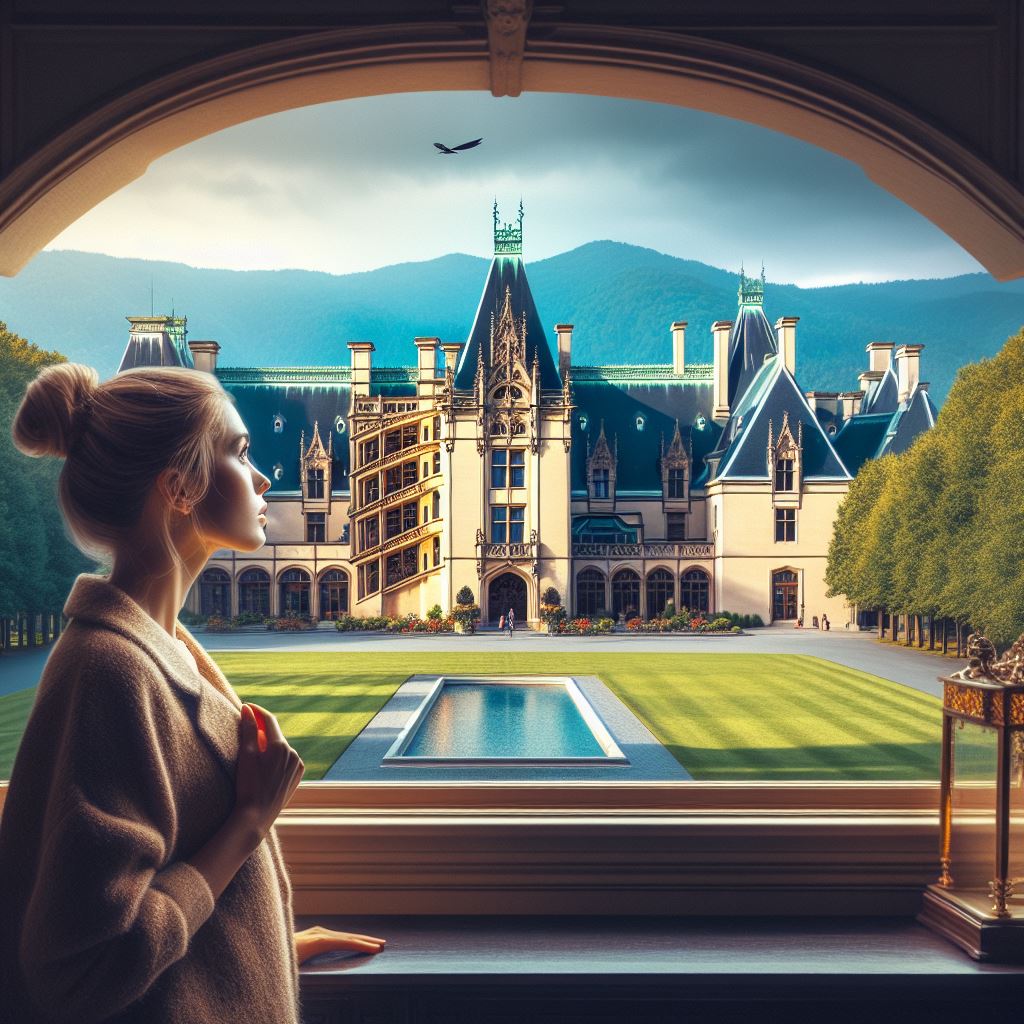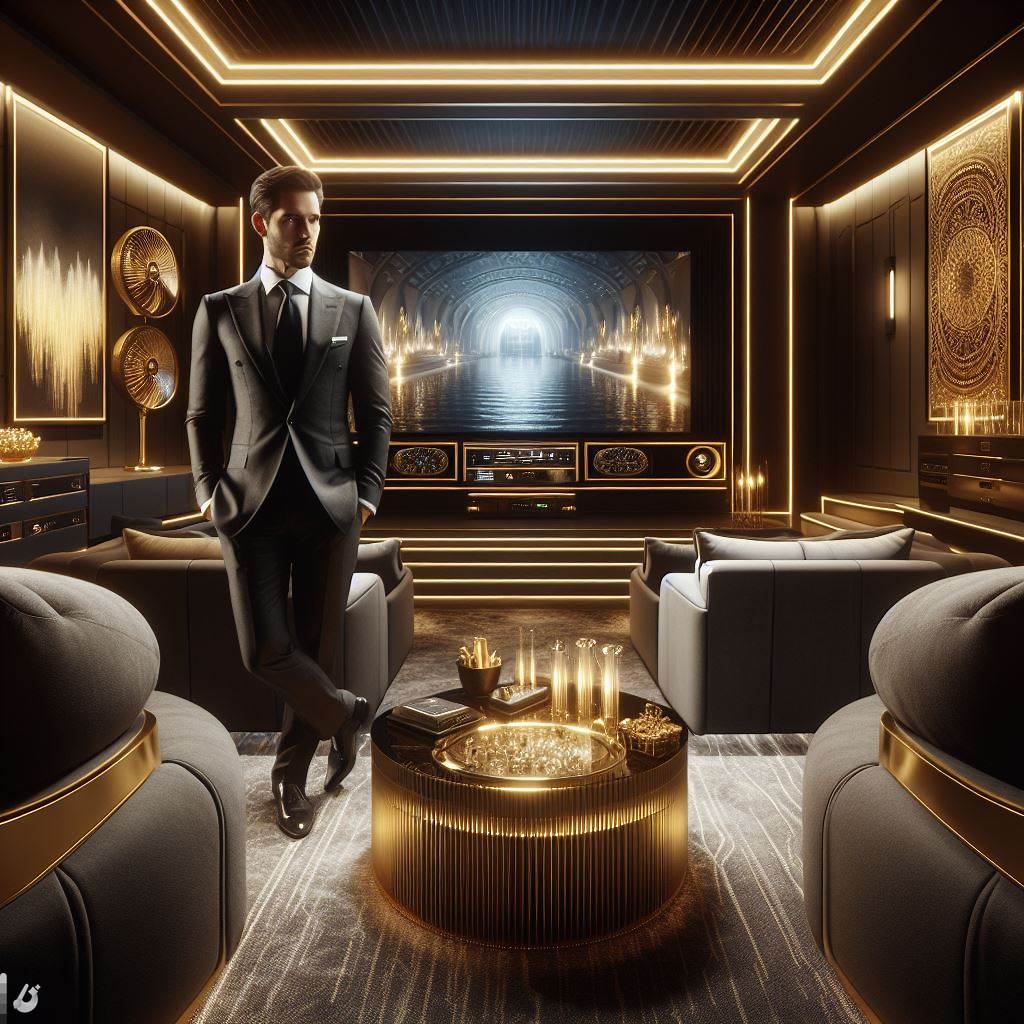Introduction
Cultural influences play a significant role in determining the value of luxury properties.
From the architectural design to interior décor, cultural elements greatly affect the desirability and perceived value of these high-end homes.
For example, in some cultures, specific architectural styles, such as Mediterranean or Asian-inspired designs, are highly sought after and can command a premium price.
Additionally, cultural preferences for certain materials and finishes, like marble or precious woods, can further influence the value of luxury properties.
Moreover, cultural influences extend beyond just the physical aspects of luxury properties.
The location of these homes often holds cultural significance and can impact their value.
For instance, properties near iconic landmarks, historical sites, or in exclusive neighborhoods associated with wealth and prestige tend to have higher market values.
Furthermore, cultural events and festivals held in the vicinity can increase the allure and value of luxury properties, as they offer residents unique experiences and access to elite social circles.
In fact, cultural factors have a significant impact on luxury property value.
The demand for specific architectural styles, materials, and finishes, as well as the cultural significance of the location, all contribute to the perceived value and desirability of these high-end homes.
As the market for luxury properties continues to grow globally, understanding and considering cultural influences becomes essential for both buyers and sellers in this exclusive niche of the real estate market.
Cultural Factors Affecting Luxury Property Value
Luxury real estate is not merely defined by its opulence; its value is intricately woven into the cultural fabric of its surroundings.
Understanding the profound impact of cultural factors on property value is paramount for discerning investors seeking more than just a lavish residence.
Let’s delve into four key facets that elucidate the nexus between culture and luxury property value.
Historical Significance and Heritage of the Property
Properties with a rich historical tapestry often command a premium.
A mansion steeped in history becomes more than a dwelling; it transforms into a living testament to bygone eras.
Buyers are drawn to the allure of owning a piece of history, and the historical significance of a property contributes significantly to its perceived value.
Preservation efforts and adherence to architectural heritage further enhance the appeal, creating a timeless allure that transcends market trends.
Cultural Landmarks and Proximity to Cultural Activities
Luxury extends beyond the walls of a residence. Proximity to cultural landmarks and vibrant activities can exponentially elevate a property’s value.
The allure of living within walking distance of renowned museums, theaters, or art galleries adds an extra layer of sophistication.
The pulse of cultural life becomes a part of the resident’s daily experience, making the property not just a home but a gateway to cultural enrichment.
Influence of Local Traditions and Customs on Property Value
Local traditions and customs contribute to the unique identity of a region.
Properties that seamlessly integrate with the local ethos gain favor among buyers seeking an authentic cultural experience.
From architectural design to landscaping, incorporating elements that reflect local customs adds an exclusive charm.
This harmonious blend ensures that the property resonates with both residents and potential buyers, bolstering its desirability.
Connection to Prestigious Cultural Institutions in the Area
The proximity of a luxury property to prestigious cultural institutions can be a game-changer.
Living in the vicinity of renowned universities, art schools, or research centers not only adds an intellectual dimension but also ensures a refined community.
The association with esteemed cultural hubs becomes a marker of distinction, elevating the property’s cachet and influencing its market value.
In short, the cultural underpinnings of luxury properties are integral to their allure and investment potential.
Recognizing the impact of historical significance, cultural landmarks, local traditions, and institutional connections is essential for those seeking residences that transcend the ordinary, embodying a rich tapestry of cultural refinement.
Read: Voice Control: The New Luxury Home Norm
Architecture and Design influenced by culture
Influence of cultural aesthetics on luxury property value
- Cultural aesthetics play a vital role in determining the value of luxury properties.
- The architectural style and design elements inspired by a particular culture can attract high-end homebuyers.
- Cultural aesthetics create a unique appeal, making the property stand out in the market.
- Luxury properties incorporating cultural aesthetics often command a higher selling price.
- Buyers are willing to pay a premium for properties that reflect their cultural preferences and interests.
- Cultural elements can enhance the overall visual appeal and perceived value of a luxury property.
- Properties that integrate cultural aesthetics provide a sense of exclusivity and luxury to buyers.
Integration of cultural elements for high-end homebuyers
- High-end homebuyers often seek properties that exhibit a fusion of their own culture and the local culture.
- Property developers cater to this demand by incorporating cultural elements into their designs.
- Integration of cultural elements enhances the overall experience and lifestyle offered by luxury properties.
- Buyers view these properties as an extension of their identity and personal preferences.
- High-end homebuyers desire properties that showcase their cultural heritage and values.
- The integration of cultural elements can create a sense of pride and belonging for the buyers.
- Properties incorporating cultural elements are seen as unique and offer a one-of-a-kind living experience.
The importance of cultural symbolism in property design
- Cultural symbolism adds depth and meaning to the design of luxury properties.
- Cultural symbols resonate with the emotional and psychological aspect of buyers.
- The use of cultural symbols in property design establishes a connection with the buyers.
- Properties that incorporate cultural symbolism evoke a sense of nostalgia and familiarity.
- Buyers associate cultural symbolism with prestige, sophistication, and exclusivity.
- Cultural symbolism in property design creates a sense of harmony and balance.
- Properties with well-integrated cultural symbolism have a timeless and enduring appeal.
Impact of cultural design on resale value
- Luxury properties with cultural design elements have a higher potential for increased resale value.
- Properties incorporating cultural design attract a niche market of buyers who appreciate cultural diversity.
- The rarity and uniqueness of cultural design elements contribute to the appreciation of resale value.
- Properties with strong cultural design foundations tend to hold their value over time.
- Cultural design elements create a memorable impression on potential buyers, increasing their willingness to pay a higher price.
- Cultural design enhances the property’s desirability and distinguishes it from other competing properties.
- Investing in cultural design ensures long-term value and market appeal for luxury properties.
By understanding the influence of cultural aesthetics, the integration of cultural elements, the importance of cultural symbolism, and the impact on resale value, it becomes evident that culture plays a significant role in the value of luxury properties.
Read: Hearst Castle’s Opulence: A Deep Dive

Lifestyle and Exclusivity driven by culture
Luxury properties, often synonymous with opulence and exclusivity, derive their value not only from their physical attributes but also from the cultural context that surrounds them.
The interplay between culture and luxury real estate is intricate, shaping the very essence of these coveted properties.
Association of Luxury Properties with Specific Cultural Groups
Luxury properties often become synonymous with the identity of specific cultural groups.
Certain neighborhoods or developments gain prominence as they align with the preferences and aspirations of particular demographics.
The prestige attached to residing in an area associated with one’s cultural heritage contributes significantly to the allure of luxury real estate.
Influence of Cultural Events and Festivals on Property Demand
Cultural events and festivals serve as catalysts for heightened demand in the luxury real estate market.
Properties situated in proximity to iconic cultural gatherings gain a distinct appeal.
The vibrancy and excitement generated during such events contribute to the overall desirability of the location, influencing potential buyers seeking a lifestyle deeply embedded in cultural experiences.
Cultural Preferences Influencing Amenities and Features
Discerning buyers often seek luxury properties that align with their cultural preferences.
From architectural styles to interior design elements, cultural nuances play a pivotal role in shaping the features and amenities that define a luxury property.
Developers and architects, attuned to these cultural preferences, create spaces that seamlessly blend luxury living with cultural aesthetics.
Cultural Experiences and Services Available to Residents
Beyond the physical aspects, luxury properties offer a curated lifestyle that caters to the cultural inclinations of their residents.
Exclusive cultural experiences, personalized services, and bespoke amenities contribute to the overall appeal of these properties.
From private art collections to culturally themed events, residents find themselves immersed in an environment that celebrates their cultural identity.
In a nutshell, the intrinsic link between culture and luxury property value extends beyond aesthetics.
It permeates the very fabric of these spaces, shaping the lifestyle, exclusivity, and desirability that define them.
Understanding and leveraging this dynamic relationship is essential for both developers and buyers navigating the captivating world of luxury real estate.
Read: Biltmore Estate: America’s Largest Home Unveiled
Popular International Destinations for Cultural Luxury Properties
Cities known for their cultural heritage and luxury value
- Paris: Known for its rich history, artistic heritage, and iconic landmarks such as the Eiffel Tower and Louvre Museum.
- Rome: Home to ancient ruins, world-renowned art, and historical sites like the Colosseum and Vatican City.
- New York City: A cultural melting pot with world-class museums, theaters, and luxury properties in trendy neighborhoods like Manhattan.
- Tokyo: Combines traditional Japanese culture and modernity, offering luxury properties in upscale districts like Ginza and Roppongi.
- Barcelona: Known for its distinctive architecture, vibrant art scene, and luxury properties in sought-after areas such as Eixample.
The cultural charm and unique features of each location
- Paris: The city of love and light, with its charming cafes, romantic boulevards, and world-class fashion and cuisine.
- Rome: A city where ancient history comes alive, offering a blend of architectural marvels, delicious cuisine, and vibrant street life.
- New York City: A bustling metropolis that never sleeps, offering a diverse cultural experience with Broadway shows, art galleries, and international cuisine.
- Tokyo: A city that seamlessly weaves traditional and ultra-modern elements, offering a unique cultural experience with ancient temples and futuristic technology.
- Barcelona: A city with enchanting architecture by Antoni Gaudí, lively street performers, and a vibrant nightlife scene.
Comparison of property prices in different cultural hotspots
- Paris: Luxury properties in prime locations like the Champs-Élysées can range from millions to tens of millions of dollars.
- Rome: Luxury properties in historic districts like Trastevere can range from hundreds of thousands to millions of euros.
- New York City: Luxury properties in Manhattan can range from several million to tens of millions of dollars, depending on the neighborhood.
- Tokyo: Luxury properties in upscale areas like Minato can range from millions to tens of millions of yen.
- Barcelona: Luxury properties in exclusive neighborhoods like Sarrià-Sant Gervasi can range from hundreds of thousands to millions of euros.
Influence of cultural tourism on property value
Cultural tourism enhances the desirability of a location, attracting affluent tourists who may consider investing in luxury properties.
Increased tourism leads to higher demand for luxury accommodations, driving up property values in cultural hotspots.
The presence of cultural landmarks and attractions in an area creates a sense of prestige and exclusivity, attracting high-end buyers.
Luxury properties near cultural sites often command higher rental rates, making them attractive investment options for property owners.
The economic impact of cultural tourism boosts local businesses and infrastructure, further increasing the value of properties in the area.
Therefore, popular international destinations known for their cultural heritage and luxury value, such as Paris, Rome, New York City, Tokyo, and Barcelona, offer unique experiences and unparalleled attractions.
The combination of cultural charm, distinctive features, and high-end amenities make these locations prime choices for luxury property investments.
The influence of cultural tourism on property value further adds to the allure of these destinations, making them desirable for buyers and investors alike.
Read: Luxury Vacation Homes: Investment Guide
Conclusion
Throughout this exploration of the cultural impact on luxury property value, it becomes evident that cultural factors play a pivotal role in shaping the real estate market.
The intricate interplay between cultural nuances and property value has been dissected to reveal a multifaceted relationship.
From architectural preferences to neighborhood characteristics, the influence of culture on luxury real estate is far-reaching.
We delved into the significance of historical context, showcasing how the preservation of cultural heritage can elevate property values.
Architectural styles rooted in cultural traditions not only cater to the aesthetic preferences of high-net-worth individuals but also contribute to the uniqueness and exclusivity of a property.
Additionally, we scrutinized the role of cultural amenities and events in enhancing property values.
Proximity to cultural hubs, museums, and vibrant communities can exponentially raise the allure of a luxury property.
Understanding these dynamics is crucial for both buyers and sellers in the competitive luxury real estate market.
In essence, this examination affirms that the cultural context surrounding a luxury property significantly influences its market value.
Whether it be the architectural embodiment of cultural heritage or the dynamic social fabric surrounding a property, cultural elements are integral to the valuation equation.
The thesis, which posits that cultural factors are paramount in determining luxury property value, is substantiated by the thorough analysis conducted.
We navigated through various cultural dimensions, acknowledging the impact of traditions, aesthetics, and social dynamics on the desirability and valuation of high-end real estate.
From opulent residences that embrace historical influences to the cosmopolitan allure of culturally rich neighborhoods, every facet contributes to the overall narrative of a luxury property’s value.
As we conclude, it is crucial to underscore the lasting importance of cultural factors in the real estate market.
The discerning buyer seeks not only a residence but an immersive cultural experience.
Developers and real estate professionals must recognize and leverage these cultural nuances to thrive in the ever-evolving luxury real estate landscape.
Cultural awareness, therefore, becomes a strategic imperative for those navigating this realm, as it transforms a mere transaction into a meaningful investment in both property and cultural richness.




